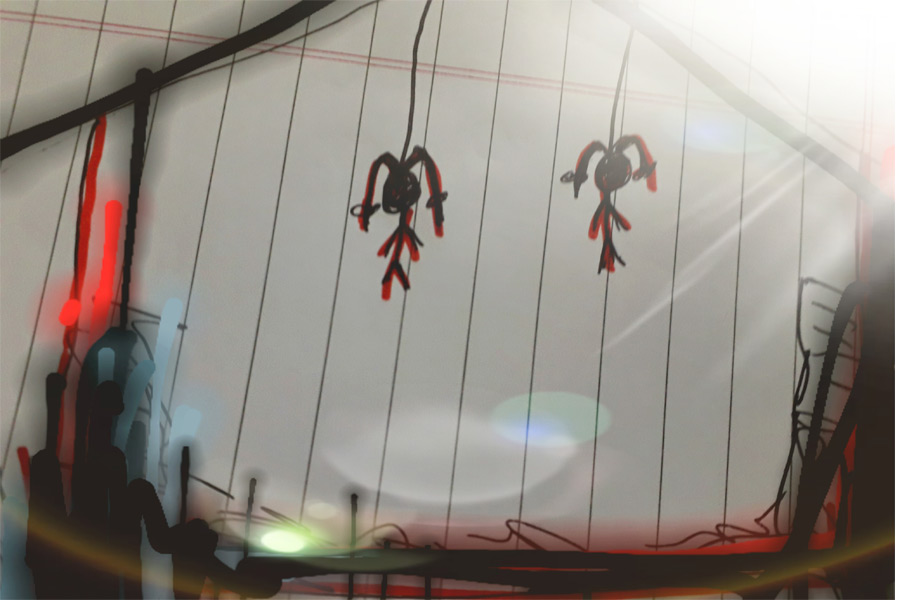At the turn of this century, the United Kingdom was struck by a shocking event. It was a huge jolt to the people who had thought that they were doing well with their children, by and large. Then, Victoria Climbie’ died.
An 8-year-old from Ivory Coast, Victoria, was fostered by her aunt, Marie-Therese’ Kuoao and, taken out of the country in search of a better life for them both. They spent some time in France first before moving on to the UK in April 1999. Her aunt tried to enrol with several social services for housing and other needs, but had always been treating little Victoria badly. She also met a man younger than her, moved in with him but he was even crueller to the child.
Victoria was abused physically, mentally and emotionally in a variety of methods each more sadistic than the rest. Her aunt was told by a pastor that the child was possessed by Satan, hence she was evil. Because she was bed wetting, Victoria was forced to sleep in a bathtub in her own excrement and was poorly fed and abused at regular intervals. Even the times when she had been admitted in hospital and abuse suspected, the system simply lost track and quite unintentionally, she was failed at every level.
In February 2000, she was brought on her last journey to St Mary’s Hospital, London, battered and bruised, unconscious and hypothermic, and slowly, perhaps mercifully relieved of her painful unwanted and traumatic existence.
The pathologist who examined her body noted 128 separate injuries and scars on her body, and described it as the worst case of child abuse she had ever seen. Climbié had been burnt with cigarettes, tied up for periods longer than 24 hours, and hit with bike chains, hammers and wires. During her life in Britain, Climbié was known to four local authorities (four social services departments and three housing departments), two child protection police teams, two hospitals, an NSPCC Centre (The National Society for the Prevention of Cruelty to Children), and a few local churches.
Her carers, the people around her, her lack of access to schooling, the social services, the doctors—at every level , there was a disconnect. Poor Victoria became an abject poster child of abuse, and in her terminal suffering, she awakened the collective conscience of the nation. A formal enquiry was launched under Lord Laming which unearthed page after page, evidence after evidence of missed opportunities and fault lines throughout the care system that was meant to protect a child.
And thus out of a collective failure to safeguard this poor little child from faraway Ivory Coast, the program and slogan ‘Every Child Matters’ was born in 2003 with recommendations and guidelines for all agencies to safeguard and care for all children. Child Protection was straightened, bolstered and enforced.
We have in India, and in Kerala, so many similar cases. The brutally assaulted 7-year-old boy from Thodupuzha is forgotten and now the case of the sisters from Walayar have surfaced. As a society, how aware are we that children are a vulnerable lot and everyone connected with a child has got a responsibility not to endanger his/her safety, security and well being?
We think little of beating our children—for being fussy with food, for “bad behaviour”, for bed wetting, for poor scholarship—just anything that involves them not walking on the line laid out for them. Even today, children are regularly caned in schools, tuition classes and at home. It’s not even considered an abuse, but as a necessity for them to show “improvement”. There are even schools which require parents to give a letter requesting that their child should not be caned implying the default status with regard to discipline—regardless of the law on corporal punishment.
We have had hundreds of Victoria Climbie’s. Yet, our Child Welfare Committees, our Women’s Commissions, our infrastructure and resources for investigating and looking after children remain woefully inadequate. The majority of our doctors are neither trained to pick up or respond to child abuse, nor do they get the support from authorities to report the same. Our Juvenile Homes are ramshackle and not assuredly safe places either. There isn’t a consistent system in place which will pick up on a complaint and act. The best that can be said is that there’s more sensitisation about child abuse in general in the last few years especially since the POCSO act came about. Child abuse has yet to enter the MBBS or MD curriculum.
Abuse in childhood can have long reaching consequences as documented by several research studies done in this field. Physical and sexual abuse can have direct injurious effects with their own physical outcomes. All forms of abuse (physical, mental, emotional and sexual) can result in low self-esteem, difficulty in developing sustainable relationships and even severe dissosciative states. Some children are abused when young and they could become perpetrators themselves as adults and keep the vicious circle going.
Our society has a long way to go. First we must acknowledge the elephant in the room—child abuse is prevalent in our society. People in roles that deal with children must have strong awareness for perceiving such possibilities and institutions must have guidelines for reporting these issues. The systems for investigating such concerns should be quick, professional and non-judgemental while being thorough as well as child-friendly during the process. Sadly the reality is quite different.
We must recognise that the boy from Thodupuzha or the Walayar sisters are but the tip of the iceberg.
Will we ever reach the tipping point?







